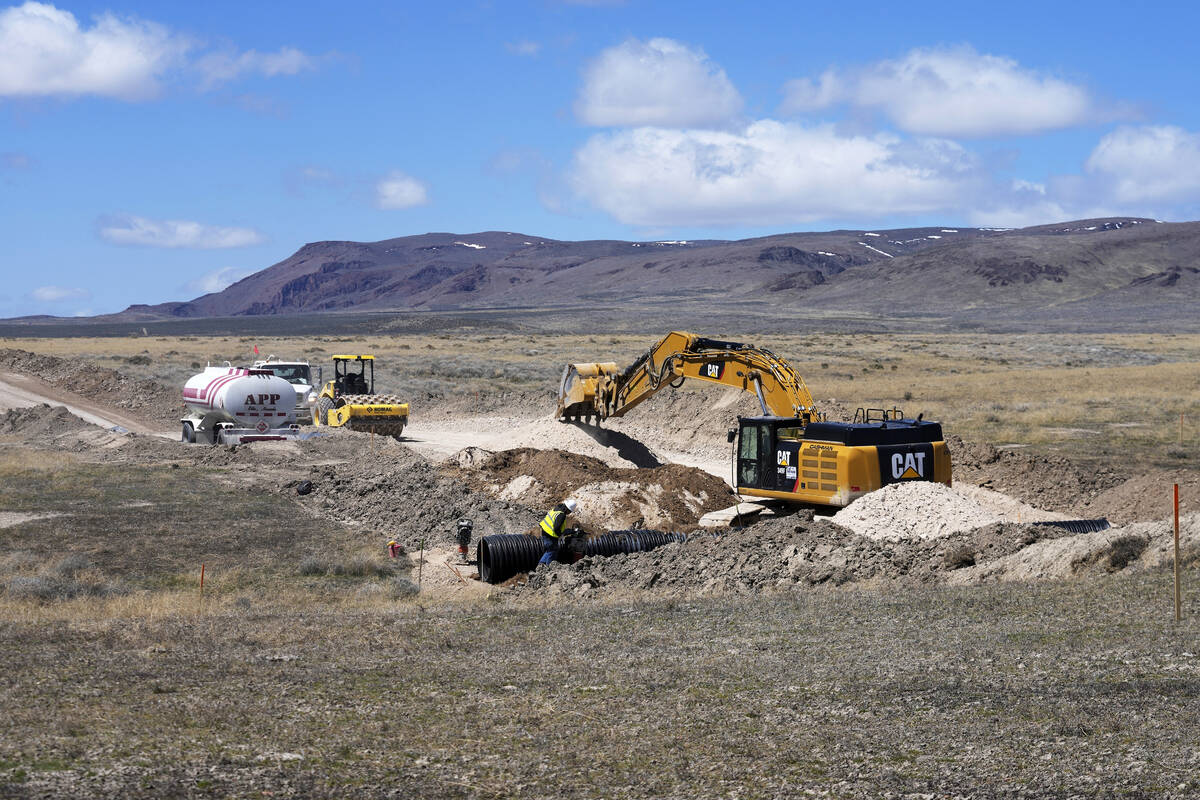Nevada location could be home to world’s biggest lithium deposit

An ancient volcanic lakebed on the Nevada-Oregon border could hold the largest known deposit of lithium in the world, according to a recent study paid for by a mining company looking to extract the precious metal.
The deposit inside the McDermitt Caldera may hold between 20 million and 40 million metric tons of lithium, an amount that would stand as the world’s largest single deposit of the silver-white metal key to the production of electric vehicles, scientists wrote in the study published in the September issue of the journal Science Advances.
Funding for the study “was provided by Lithium Americas Corporation,” the Canadian mining company behind the Thacker Pass open-pit lithium mine currently under construction in the southern part of the caldera on the Nevada side.
Even if the estimates prove to be high because of variations in sediment thickness, the amount of lithium inside the clay beneath the ancient caldera lakebed “would still be on par with, if not considerably larger than,” the 10.2 metric tones of lithium found in Salar de Uyuni salt flats in Bolivia, previously considered the world’s largest deposit, the researchers wrote.
The U.S. currently has just one producing lithium mine — Silver Peak in Esmeralda County — while worldwide demand for the metal is expected to surge in the coming years.
The sheer volume of lithium believed to be inside the McDermitt Caldera firmly cements Nevada at the epicenter of the modern-day gold rush for green energy that likely will intensify as the Biden administration pushes vehicle manufacturers to ramp up electric vehicle production as part of the president’s “clean energy” agenda.
The federal government recently has invested billions in funding and loans to bolster electric vehicle production, including a $700 million loan for another lithium mine under construction in Nevada, Rhyolite Ridge in Esmeralda County.
Industry research suggests that the demand for lithium is likely to outpace global production by 2025 as more electric vehicles hit the roads.
It was already believed that once up and running, Thacker Pass would be North America’s largest source of lithium. The mining project has been mired in litigation for years, but recent rulings have allowed construction on the project to get underway.
Thomas Benson, one of the study’s authors and a geologist for Lithium Americas, told Chemistry World that the company expects to begin mining operations in 2026.
Patrick Donnelly, the great basin director for the Center for Biological Diversity, said there has never been any doubt that “there was a lot of lithium there.” Noting that the study was paid for by Lithium Americas, he said it is “indicative of the explosive hype in the lithium industry right now.”
There are about 130 proposed lithium projects across the Western U.S., Donnelly said, including 82 in Nevada and several within the McDermitt Caldera alone.
“If even a fraction of the projects get built, it will be a dramatic transformation of the American West,” he said.
Donnelly said his organization supports domestic lithium production “if it’s done in the right way,” adding that he would like to see more leadership and guidance from the federal government in helping to determine the best place to extract lithium with the least amount of environmental harm.
Contact Colton Lochhead at clochhead@reviewjournal.com.